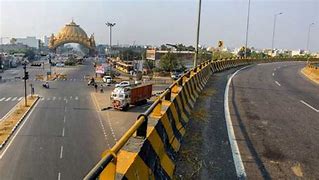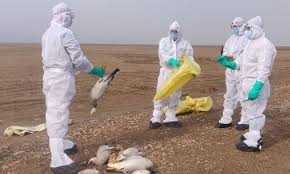Top News
Captive-bred endangered vultures set to take wing

Pinjore (Haryana): After a decade of breeding three species of vultures that are listed as critically endangered, the Saving Asia’s Vultures from Extinction (Save) programme is all set to take wing with the first release in the wild of the captive-bred birds next year.
Before their release, Save is focussing on creating “safe zones” for them to survive in nature.
At the three Bombay National history Society (BNHS) breeding centres in the country, 42 oriental white-backed, 33 long-billed and 15 slender-billed Gyps vultures have been bred, Save programme manager Chris Bowden told.
“Now we plan to make the first preliminary releases in 2016,” he said.
“Of course, the released birds will add significantly to the security of the wild populations,” added Bowden, who is also the Royal Society for the Protection of Birds (RSPB) globally threatened species officer.
Studies attribute the massive decline of three species across South Asia to the extensive use of the diclofenac veterinary drug.
The vultures that consumed the carcasses of animals treated with diclofenac died with symptoms of kidney failure. The link was firmly established in 2004.
In 2006, the drug was banned by the Indian government following a demand by ornithologists.
On the success in breeding vultures in captivity, Bowden said: “The Indian vulture species have not been captive-bred before anywhere in the world, but closely-related species have been.”
Responding to inbreeding problems being faced by other captive species in India, he said the genetic diversity within the captive stock of the vultures is relatively high.
“But we are still carefully managing the birds and their pairings to avoid close relatives from breeding. Also, when sending birds among centres, this is precisely taken into account. So it’s being taken seriously in the captive management.”
The Britain-based charitable organisation RSPB is funding three vulture breeding centres in India — Pinjore in Haryana, Rajabhatkhawa in West Bengal and Rani in Assam, and one in Nepal.
The BNHS breeding centres, including the Vulture Conservation and Breeding Centre here, hold the majority of the world’s captive stock of the three threatened vulture species.
The centres possessed 121 oriental white-backed, 72 long-billed and 55 slender-billed, all collected from the wild, besides the captive-bred birds.
Since a breeding pair rears only a single chick per year, Bowden said, “we are breeding more vultures each year.”
The first priority of the breeding programme is conserving the birds and genetic diversity, in case removal of diclofenac took too long and all wild birds had gone.
“It currently appears we may be making real progress ahead of them all disappearing, but it’s still very good that we have this security for the species concerned.”
The released birds would multiply the wild population. “We will also learn a lot from the process,” he added.
Bowden is quite confident about the survival of the vultures in nature after being bred in captivity.
“Yes, we’re quite confident that the vultures bred in captivity would be able to survive in nature too. This is based on other work on similar species, especially the Eurasian griffon and the Gyps fulvus in Israel, Italy and Bulgaria.”
“The pectoral muscles (of the captive bred birds) are well developed, and international experts have been very pleased by this, as a good sign,” he added.
Vibhu Prakash, principal scientist for the vulture breeding centre, based in Pinjore in northern India, said 22 nestlings – seven white-backed, 14 long-billed and one slender-billed – had hatched and successfully fledged.
He said documentation of normal microflora of the Gyps vultures in captivity has been undertaken to ensure the fitness of the birds to be reintroduced in the wild.
Prakash had documented the rapid vulture population decline in the Keoladeo National Park in Rajasthan in 1999.
Almost 99 percent of the white-backed vultures and 97 percent of long-billed vultures had been wiped out.
“Only 200 pairs of the slender-billed vulture are left in the world, primarily in India, Pakistan and Nepal. It’s time to save the scavengers from certain extinction through captive breeding,” he added.
Spread over five acres of Haryana forest department land in Jodhpur village off the Chandigarh-Shimla highway, the Pinjore breeding centre lies close to the Bir Shikargah Wildlife Sanctuary.
It was set up in 2001 as a vulture care centre with funding from Britain’s Darwin’s Initiative for Survival of Species fund. At that time, injured vultures were brought for care from Haryana, Rajasthan, Madhya Pradesh, Maharashtra and Gujarat.
It was upgraded to a breeding centre in 2004.
Top News
Dr. Abhishek Verma Dedicates a Shelter in Memory of His Mother, Veena Verma, at KGMU; Inaugurated by Daughter Nicolle Verma

World-renowned business tycoon Dr. Abhishek Verma has supported Foodman Vishal Singh’s Hunger-Free World mission. In memory of his mother, Late Veena Verma, who was a 3 term Rajya Sabha MP.
Dr. Verma dedicated a state-of-the-art free permanent shelter for the attendants of patients at KGMU Medical University, Lucknow, under the aegis of Vijay Shree Foundation. His daughter, Nicolle Verma, inaugurated the shelter.

During the event, Foodman Vishal Singh honored Nicolle Verma by presenting her with a memento. Mrs. Nidhi Sharma and Avantika Yadav, associated with the organization, welcomed her with garlands. Following this, Nicolle Verma distributed essential items to the attendants and also handed out fruits. She became emotional remembering her grandmother on her birth anniversary.
On this occasion, she also inaugurated the “Veena Verma Sevalaya” in memory of her grandmother, Veena Verma, to serve the attendants. She expressed, “I feel proud that my family is engaged in nation-building as well as social service. Today, in collaboration with Vijay Shree Foundation founder Foodman Vishal Singh Ji, I feel immensely proud to dedicate this shelter for the poor, helpless, and needy attendants of patients battling serious illnesses like cancer. I am honored to be associated with the Hunger-Free World Mission for humanity.”

Inspired by the continuous humanitarian service provided by Vijay Shree Foundation over the past 17 years, Nicolle Verma donated 10 lakh rupees to support the cause. The purpose of this donation is to ensure that services continue for the needy attendants of patients suffering from severe illnesses in hospitals, as facilitated by Foodman Vishal Singh.
It is noteworthy that Dr. Abhishek Verma’s family has a legacy of public and philanthropic service. They are helping millions to carry forward the values and service work of their parents. On the occasion of his mother’s birth anniversary, Dr. Abhishek Verma dedicated this state-of-the-art permanent shelter at Lucknow Medical College to serve the attendants of patients through the Vijay Shree Foundation.

Supporting Foodman Vishal Singh’s Hunger-Free World mission, Dr. Abhishek Verma assured that he would continually support keeping this flame of humanity alive. He also promised to assist in providing medicines to the helpless patients.
Continuing her grandmother’s legacy of service, Nicolle Verma personally served food to the needy patients and attendants. She said, “It is our good fortune to have received the joy of doing this noble work today through Foodman Vishal Singh. I have taken another step forward in carrying my family’s values and cooperation by joining hands with the Vijay Shree Foundation. My father taught me to serve and help the needy, and I feel happy when I bring a smile to someone’s face.”

On the birth anniversary of the late Veena Verma, the event organizer, Vijay Shree Foundation founder Foodman Vishal Singh, said, “We feel proud and happy that Dr. Abhishek Verma, a globally renowned business tycoon, has extended his support to uplift our country from the hunger index. Today, on his mother’s birth anniversary, he inaugurated a state-of-the-art permanent shelter at Lucknow Medical College, which will always be helpful for the needy attendants of patients. It is a pleasure for me and the organization to receive the affection of Mr. Verma.”
The event was attended by General Manager Verma Family Office Hemant Garg, Sonu Rajput, and the organization’s volunteers, including Sandeep Singh, Parmeshwar Ji, Prashant Rao Gautam, Balram Singh, Ramesh Chaudhary, Suman, Jeetu, Anil, Suraj, Vinay, Manish Bhadauria, Manas Mehrotra, Vivek, Apurv, Happy, and others.























